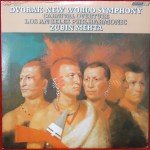More of the music of Edgar Varese (1883-1965)
Decca and London Hot Stamper Pressings Available Now

- This wonderful orchestral spectacular returns to the site after a 2+ year hiatus, here with STUNNING Shootout Winning Triple Plus (A+++) sound or close to it on this vintage London pressing
- Both sides are open, high-rez, and spacious, with depth like you will not believe – this recording of the LA Phil is truly spectacular (and we say that about very few LA Phil recordings outside of this one)
- Dynamic, huge, lively, transparent and natural – with a record this good, your ability to suspend disbelief will require practically no effort at all
Superb sound for this crazy 20th Century music, featuring wild and wacky works which rely almost exclusively on percussion (not one, not two, but three bass drums!). My favorite piece here may be Ionisation, which uses real sirens (the Old School ones cranked by hand) as part of Varese’s uniquely specialized instrumental array.
The speed of the percussion is also critical to its accurate reproduction. No two pieces of electronics will get this record to sound the same, and some will fail miserably. If vintage tube gear is your idea of good sound, this record may help you to better understand where its shortcomings lie.









 More of the music of Modest Mussorgsky (1839-1881)
More of the music of Modest Mussorgsky (1839-1881) More of the music of Camille Saint-Saens (1835-1921)
More of the music of Camille Saint-Saens (1835-1921)